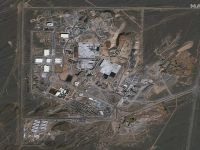The UAE has lost ground on regional economic rivals in the last year, according to a high-profile annual study which measures the business competitiveness of 139 nations. The results of the World Economic Forum’s Global Competitiveness Report - published yesterday - show the Emirates has slid two places in the poll to 27th.
It’s the second year in a row that the country has fallen two places in the report’s widely read rankings, and its authors said the country’s lower position “reflects deterioration in a number of areas, but the most striking is the country’s loss of its ability to harness the latest technologies for productivity improvements”. Meanwhile, UAE neighbours Qatar, Saudi Arabia, Oman and Kuwait all climbed the rankings in the latest report, while troubled Bahrain even managed to keep the same position it held in the previous year’s rankings.
Qatar is judged to be the most competitive country in the Middle East, climbing three places to 14th spot, while Saudi Arabia enters the top 20 for the first time with a four-place rise to 17th. It’s not all bad news for the UAE, which the report ranks fifth in the world for government efficiency, and eighth both for the quality of its infrastructure, and public trust in its politicians.
At $59,717 per head, the UAE ranks fifth in the world in terms of its gross domestic product per capita. Qatar is in second spot, generating $76,168 for each of its citizens. The report recommends that the UAE now concentrate on improving its health and education capabilities as it embarks on the next stage of its development.
Switzerland topped this year’s Global Competitiveness Report, with Singapore in second and Sweden third. The United States was ranked fifth, the United Kingdom 10th, China 26th, India 56th with African nation Chad last in 139th. “The results show that while competitiveness in advanced economies has stagnated over the past seven years, in many emerging markets it has improved, placing their growth on a more stable footing and mirroring the shift in economic activity from advanced to emerging economies,” the report’s authors concluded.








